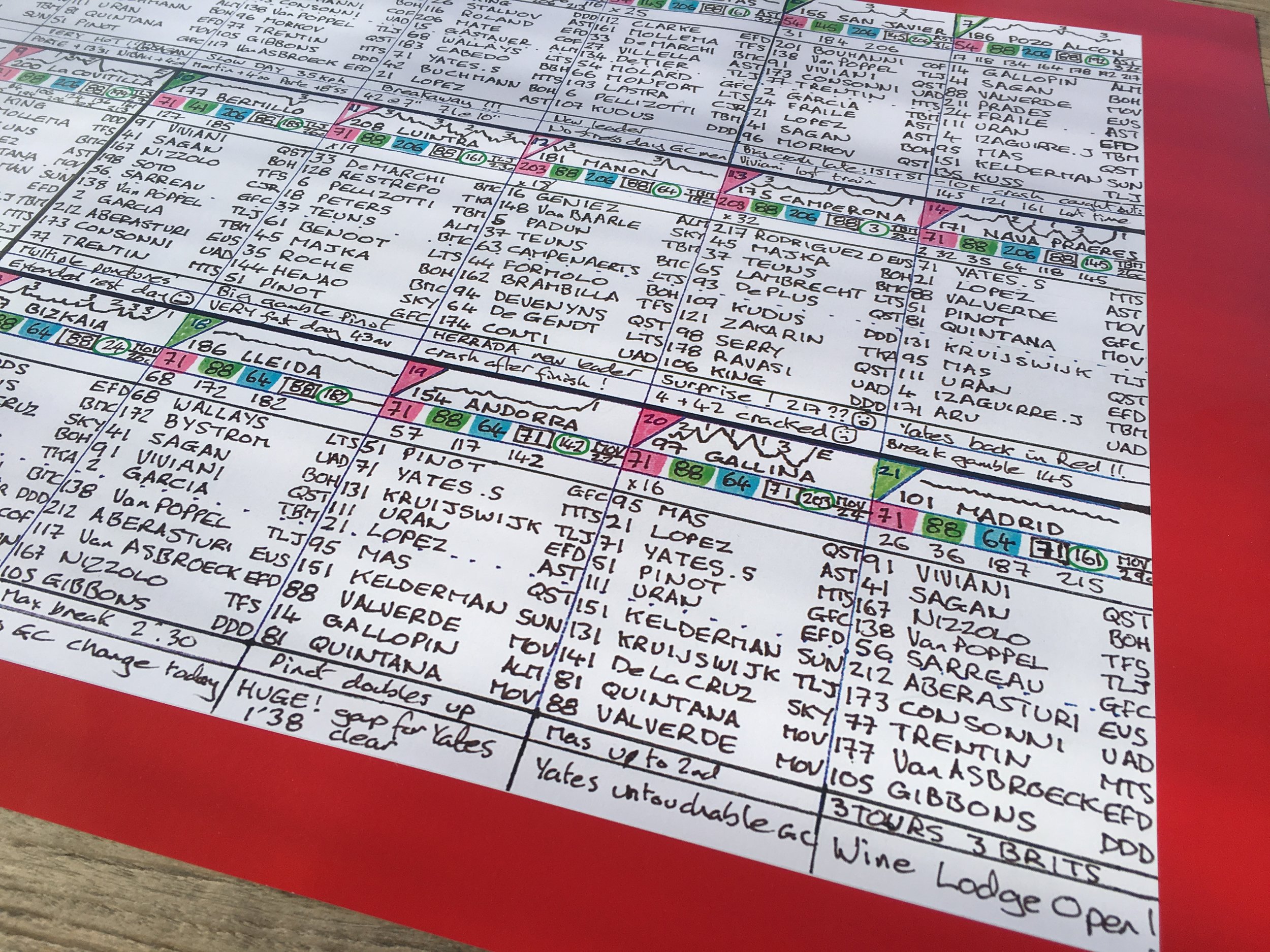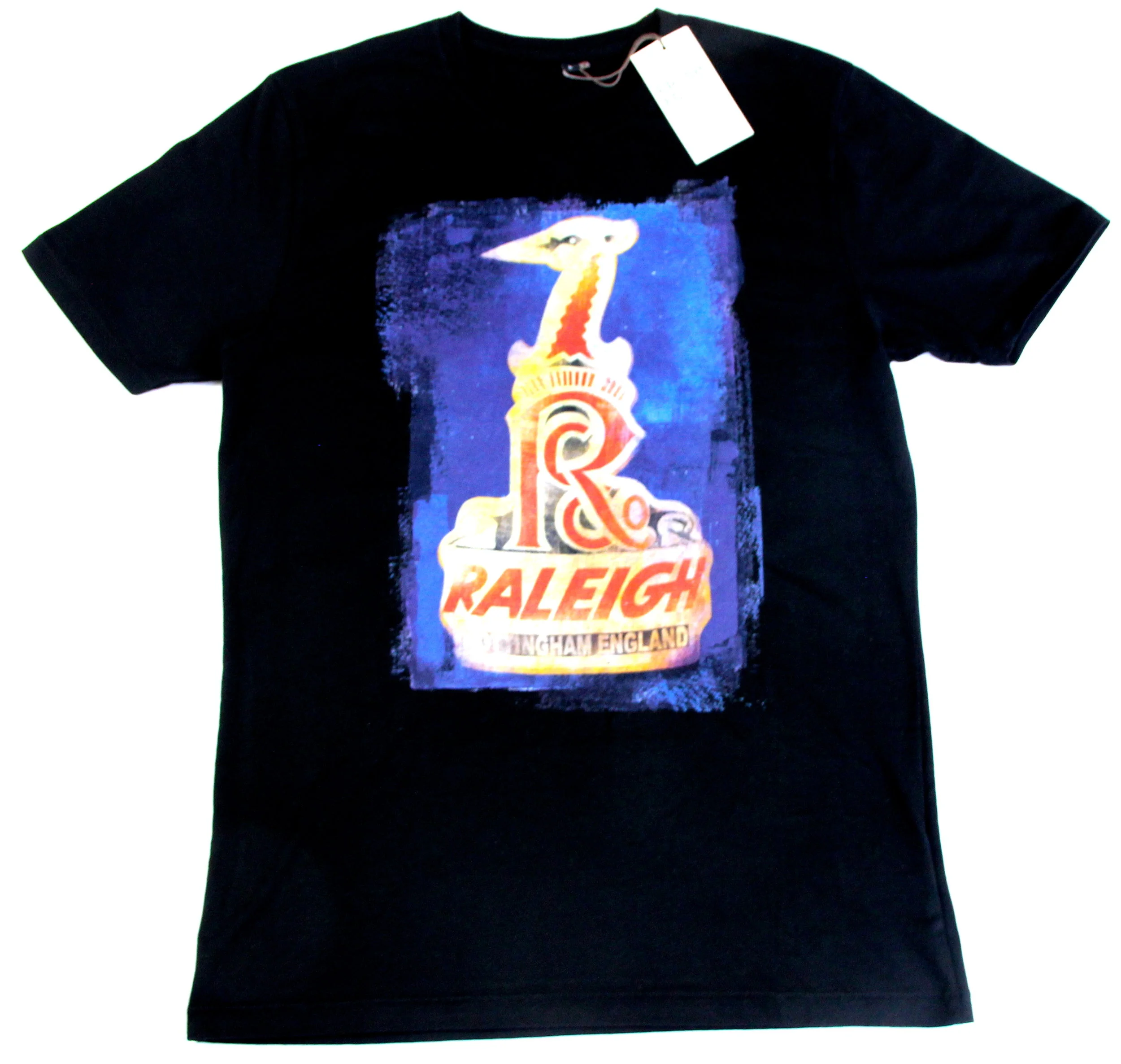“Whoever invented the bicycle deserves the thanks of humanity.”
Lord Charles Beresford
12th June sees the 200th anniversary of the first bike ride
Next week , on 12th June, we will be celebrating 200 years since the first documented journey by bicycle. In that time we have seen it develop from something that resembled a balance bike to the state of the art modern machines we know and love today.
The humble bicycle was a simple invention that still conjures up complex and powerful emotions and has moved some of our great thinkers from Einstein to Roland Barthes to philosophise over it. Meanwhile its impact on society has been enormous. What is it about the bike that stirs these feelings and thoughts and what does the future hold in store for it?
Karl von Drais
It was in 1817 that Karl von Drais undertook that famous ride on his Laufmaschine (running machine) from the city of Mannheim, covering a distance of about 13 km in one hour. While not a bike in the modern sense of the word, as it had no drivetrain, it can be seen as the big bang moment for the development of the bicycle as we know it.
His motivation stemmed from the poor harvests suffered in Europe between 1812 and 1816. The eruption of Mount Tambora in Indonesia had had a global impact – 1816 became known as the year without summer. Crops failed, livestock died and the resulting famine was the worst of its century. As a result, Drais sought to replace the horse as the main mode of transportation.
Von Drais’ invention spawned a flurry of activity over the remaining 19th century as engineers and inventors sought to improve and adapt his design. It developed from ‘dandy horse’ to Penny Farthing to the first safety bike. In fact, it can be argued that most of the significant inventions to do with the bike originate from the Victorian era. The derailleur gear, aluminium frames, the freewheel, disc wheels, anatomical saddles, clipless pedals, suspension, folding bikes: these were all ideas that originated in the late 1800s. There was even an attempt at producing an electrically powered bike.
A replica of the 'dandy horse' at this year's Tweed Run
By the end of the Victorian era a bicycle could cover a respectable distance and its low cost had a democratising effect on transport. The cost of buying and keeping a horse was close to £2000 at this time, a privilege only the nobility and extremely rich could afford, but for only £20 one could buy a bike that offered both mobility and independence to a broad mass of people. In this way the bicycle took over from the stagecoach as the most successful vehicle.
Ironically it was the bike and its innovative developments that contributed to the success of the motor car: ball bearings, spoked wheels, and pneumatic tyres came about through bicycle design and improvements. These were critical in the advancement of the car, the very beast that threatened the bicycle’s downfall as it was driven off the roads.
While many modern cities have succumbed to the dominance of the car, the bike remains the most popular means of transport in the world with over one billion in use. In contrast it is estimated that there are 500 million private cars on the roads. In Germany, seen by many as the home of the car, 45 million private cars are outnumbered by 81 million bicycles.
In the borough of Hackney in London only 36% of households own a car, a figure that has prompted the council to improve conditions for walking and cycling and strengthening sustainable transport. Meanwhile the recently published Bike Nation by Peter Walker predicts a revolution on our roads in London: if recent trends continue, by 2019 the number of people commuting to work by bike will overtake the number commuting by car. He envisages a healthier, safer and more egalitarian nation to come as a result.
To this day the bicycle’s effect as an enabler for those less well off cannot be under estimated. For many people living in rural regions of developing countries, the bicycle offers an alternative to the usual mode of transport – that of walking. World Bicycle Relief provides bikes for students, healthcare workers and entrepreneurs across Africa, South America and Southeast Asia that has benefited the lives of hundreds of thousands of people.
The same freedom that health workers and students get from the bike in the developing world was felt over a hundred years ago back in the United Kingdom. It was also a great tool and symbol for the emancipation of women. A hundred years ago, Alice Hawkins, the suffragette, cycled around Leicester promoting the women’s rights movement, causing outrage by being one of the first ladies to wear pantaloons in the city. And the American civil rights leader, Susan B Anthony wrote in 1896,
Suffragettes on bikes
“I think that the bicycle has done more to emancipate women than any one thing in the world. I rejoice every time I see a woman ride by on a bike. It gives her self reliance and independence the moment when takes her seat; and away she goes, the picture of untrammelled womanhood.”
John Galsworthy, author of the Forsyte Saga wrote, “Such historians as record the tides of social manners and morals, have neglected the bicycle. Yet would it be difficult to deny that [the bicycle] has been responsible for more movement in manners and morals than anything since Charles the Second … Under its influence, wholly or in part, have wilted chaperons, long and narrow skirts, tight corsets, hair that would come down, black stockings, thick ankles, large hats, prudery and fear of the dark; under its influence, wholly or in part, have bloomed week-ends, strong nerves, strong legs, strong language, knickers, knowledge of make and shape, knowledge of woods and pastures, equality of sex, good digestion and professional occupation.”
But the bicycle’s role as an enabler and an emancipator aside, there’s something about the union of human body and machine, not to mention the mind that has inspired some of our great thinkers to eulogise about cycling. Politicians, poets, artists, scientists and philosophers have all contributed to the mystique and romance of the bike. We’ve picked a few of our choice quotes for you to mull over at the end of this article from Jean Paul Sartre to Freddie Mercury.
But what of the future of the bicycle? The last five years or so have seen a huge rise in popularity of the sport which, in turn, has led to increased participation as well as people using the bike as a viable transport option. Although campaigners call for much more funding to promote cycling, it can't be denied that progress is being made with the construction of segregated bike lanes in our capital city. Electric bikes are seen by some as the way forward and there’s no doubt that this looks like becoming a huge part of the development of the bike.
But for me it’s the physical exertion that demands no external help from batteries or fuel that make this the best invention of all time. Jet Macdonald a cycling philosopher said, “when we say, ‘that was a good ride’ we are also saying something much more complex and interesting about the way that we can change and extend ourselves through what we do. Cycling takes us to the extremes of stamina, psychology and geography, in a way other transport can only dream of. It stretches not just our bodies but our minds. And you don’t need a PhD in philosophy to understand that. Just a well-oiled drivetrain.”
And nothing can replace the sheer aesthetic beauty of the bike: whether it’s a skinny framed steel road bike or a carbon fibre state of the art Tour de France steed, a chunky mountain bike or a load carrying cargo bike. To me they’re all objects of beauty and desire. A utilitarian machine has transcended itself into an art form.
So thank you Karl von Drais. Your legacy continues and long may it continue to do so. Happy Birthday to the bicycle!
Some thoughtful quotes about cycling that you may not have come across:
“To possess a bicycle is to be able first to look at it, then to touch it. But touching is revealing as insufficient; what is necessary is to be able to get on the bicycle and take a ride. But this gratuitous ride is likewise insufficient; it would be necessary to use the bicycle to go on some errands…Finally, as one could foresee, handing over a bank note is enough to make a bicycle belong to me, but my entire life is needed to realise this possession.” Jean Paul Sartre
“The bicycle is the most civilised conveyance known to man. Other forms of transport grow daily more nightmarish. Only the bicycle remains pure in heart.” Iris Murdoch, ‘The Red and the Green’
“I began to feel that myself plus the bicycle equaled myself plus the world, upon whose spinning wheel we must all earn to ride, or fall into the sluiceways of oblivion and despair. That which made me succeed with the bicycle was precisely what had gained me a measure of success in life — it was the hardihood of spirit that led me to begin, the persistence of will that held me to my task, and the patience that was willing to begin again when the last stroke had failed. And so I found high moral uses in the bicycle and can commend it as a teacher without pulpit or creed. She who succeeds in gaining the mastery of the bicycle will gain the mastery of life.” Frances E. Willard, ‘How I Learned To Ride The Bicycle’, 1895
“Bicycling…is the nearest approximation I know to the flight of birds. The airplane simply carries a man on its back like an obedient Pegasus; it gives him no wings of his own. There are movements on a bicycle corresponding to almost all the variations in the flight of the larger birds. Plunging free downhill is like a hawk stooping. On the level stretches you may pedal with a steady rhythm like a heron flapping; or you may, like an accipitrine hawk, alternate rapid pedaling with gliding. If you want to test the force and direction of the wind, there is no better way than to circle, banked inward, like a turkey vulture. When you have the wind against you, headway is best made by yawing or wavering, like a crow flying upwind. I have climbed a steep hill by circling or spiraling, rising each time on the upturn with the momentum of the downturn, like any soaring bird. I have shot in and out of stalled traffic like a goshawk through the woods.” Birdwatching author Louis J Halle ‘Spring in Washington’, 1947/1957
“The bicycle is already a musical instrument on its own. The noise of the bicycle chain, the pedal and gear mechanism, for example, the breathing of the cyclist, we have incorporated all this in the Kraftwerk sound…When your bike functions best, you don’t hear it – it’s silent, there’s no cracking, just shhhh – you’re gliding. It’s the same when you’re in good shape and you’re in form and you’re riding your bike, you hear nothing – maybe just a little bit of breath.” Maxime Schmitt, Kraftwerk friend and collaborator, ‘Kraftwerk: Man, Machine, Music’ (SAF Publishing, 2001)
"I don’t believe in Peter Pan, Frankenstein or Superman; All I wanna do is bicycle, bicycle, bicycle…” Freddie Mercury
“Meet the future; the future mode of transportation for this weary Western world. Now I’m not gonna make a lot of extravagant claims for this little machine. Sure, it’ll change your whole life for the better, but that’s all.” Bicycle salesman in Butch Cassidy and the Sundance Kid, 1969



































